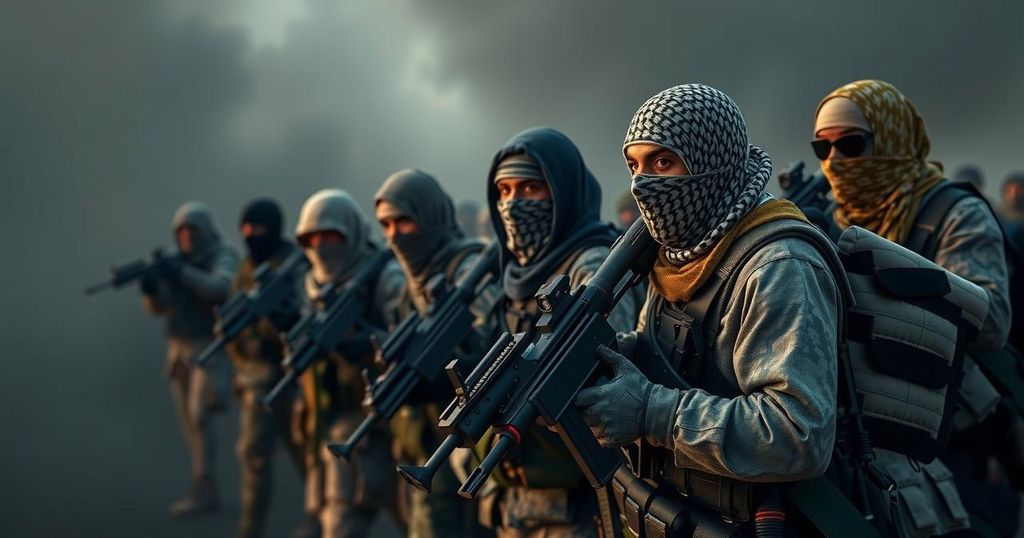Emergence of Jihadist Group Lakurawa in Northwest Nigeria: A Growing Concern

Lakurawa is a new jihadist group active in northwest Nigeria, primarily in four local government areas in Sokoto State. They impose strict religious laws, collect taxes, and enforce social controls through intimidation. Emerging from the Sahel region, their presence has raised fears among local populations, particularly regarding forced marriages and punitive measures against non-compliance with their dictates.
Lakurawa is a recently emerged jihadist group operating primarily in northwest Nigeria, specifically within four local government areas: Binji, Gudu, Tangaza, and Silame in Sokoto State. This group is notorious for its strict imposition of religious views on local populations, where they have reportedly punished those engaging in what they deem immoral behaviors. They extract taxes, including Zakah, and reportedly coerce families into marrying off their daughters to members of the group. Sources indicate that the members of Lakurawa infiltrated these areas from the Sahel region, including countries such as Niger and Mali. Despite initial resistance due to Nigerian security forces, the group’s activities escalated over the past two years. The Nigerian Defence Headquarters has confirmed the group’s existence, citing a lack of military cooperation with Niger due to political unrest as a contributing factor to their infiltration. Lakurawa’s operations involve preaching to local villagers, denouncing the influence of state authority, military forces, and Western education. They engage with residents using multiple languages, including Hausa, Fulfulde, and English, to disseminate their ideology. Despite initial relief among villagers due to the elimination of bandits, fear has now shifted toward the jihadist group itself, especially with reports of forced marriages and harsh punitive measures against those who do not adhere to their rules. The group’s recruitment strategies involve targeting community members who assist them in enforcing their agenda, granting individuals authority over their neighborhoods. This has caused considerable anxiety among local leadership, which is perceived as powerless to combat the escalating authority of Lakurawa. Villagers express fear for their daughters’ futures and describe dire consequences for those who resist or do not comply with the group’s demands.
The formation of Lakurawa is indicative of the growing threat posed by jihadist groups in Nigeria’s northwest region, which has historically faced challenges from banditry and violent extremism. This new organization emerged after a coup in Niger, which disrupted regional security collaboration and facilitated the movement of terrorist elements into Nigeria. Their activities reflect broader issues of governance, security, and community relations within vulnerable populations in remote areas.
In conclusion, the emergence of the Lakurawa jihadist group highlights ongoing challenges in Nigeria regarding security, governance, and community resilience. Their operations reflect a concerted effort to impose a strict form of governance and social order through intimidation and coercive practices. The increasing fear among local populations, coupled with the inability of state forces to provide adequate protection, raises urgent questions about the future stability of these regions and the wellbeing of their residents.
Original Source: www.bbc.com







